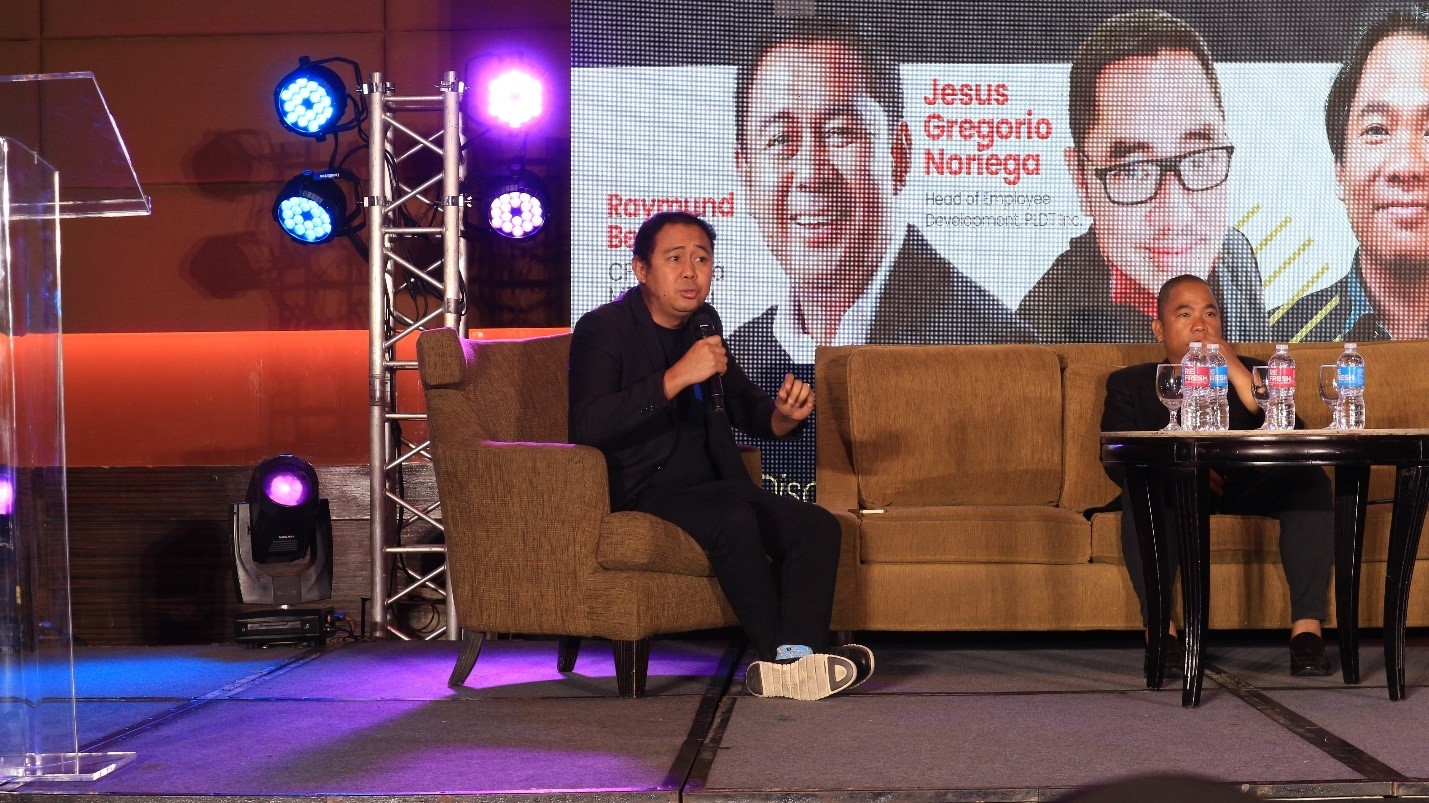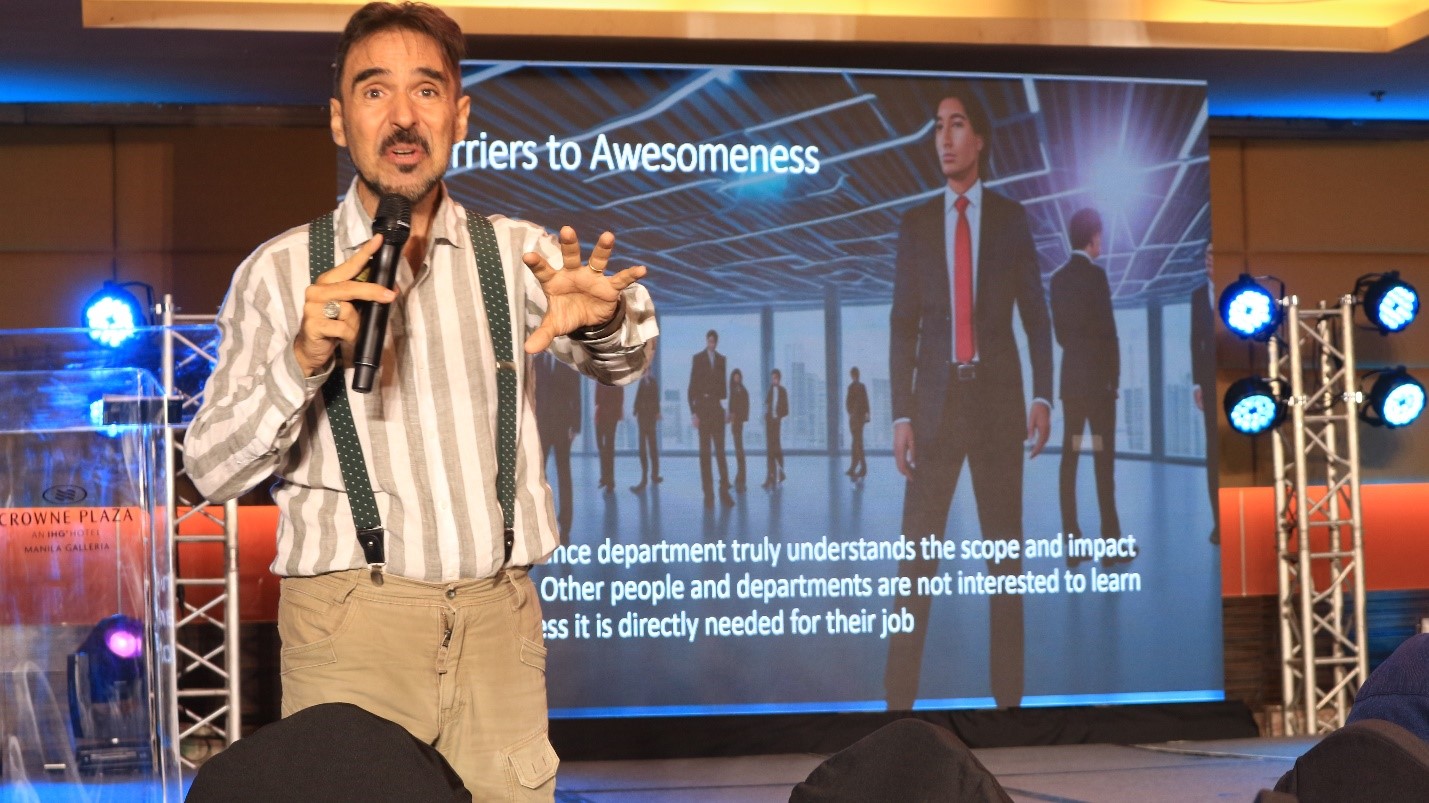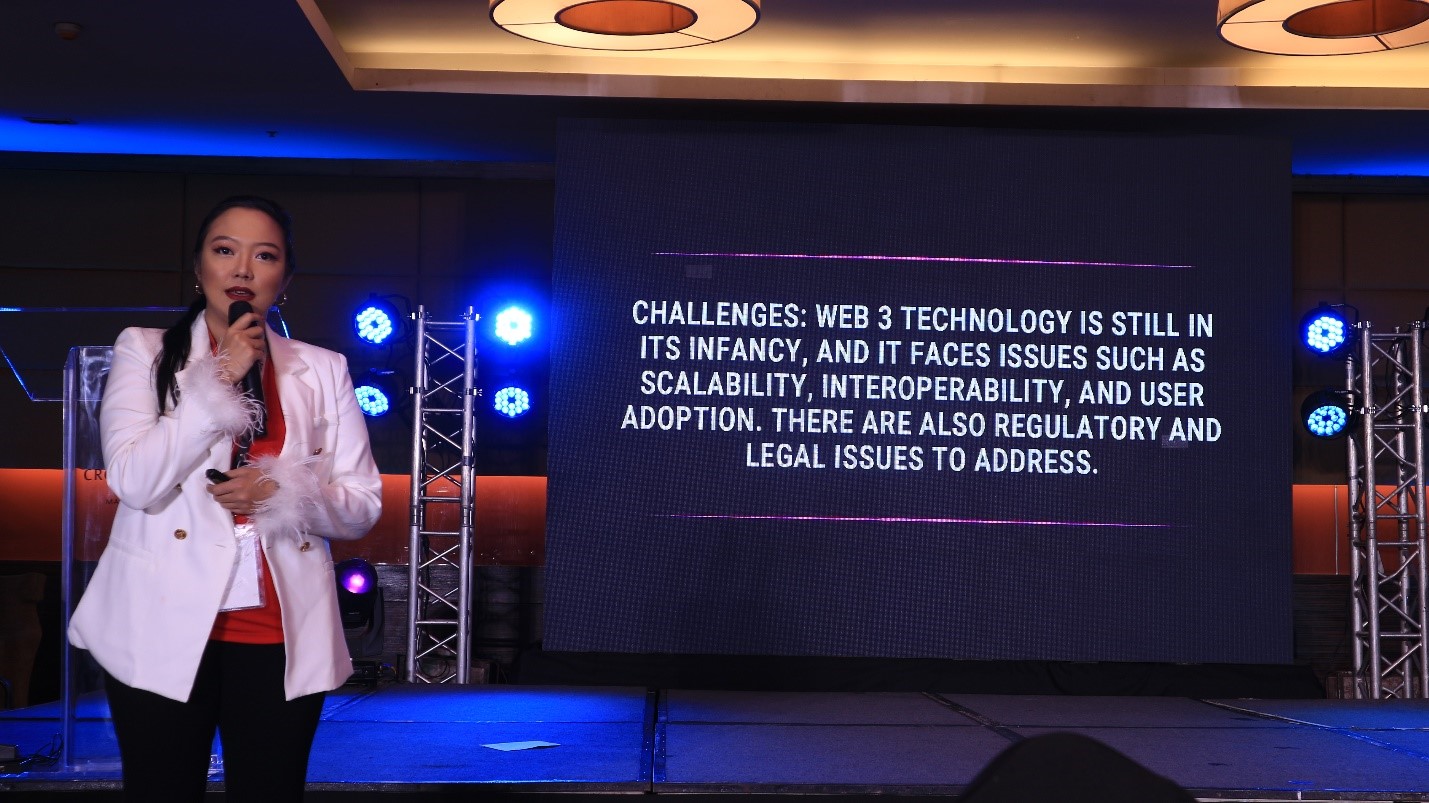The first day of the CFO Summit kicked off at the Crowne Plaza Manila Galleria in Ortigas City, and unlike previous fintech events held in the Philippines in recent months, Monday’s gathering focused primarily on talent and venue development. rather than focusing the discourse on emerging technologies.
Industry experts have long touted the Philippines as one of the countries to watch for blockchain innovation and adoption. The nation of more than 113 million people has made strides to ensure it keeps up with the changing global financial and technology landscape, as seen at previous events, such as the World Summit on blockchain in Bataan province and the first Philippine Blockchain Week in the heart of Metro Manila.
As the country gradually makes a name for itself in the global tech space, key players say it is imperative for the national government, public and private sectors, with the help of the community, to tackle the issues under that prevent or potentially prevent the Philippines from achieving its full digital transformation.
Along with the need to upskill Filipinos, build a talent pool, and educate young people on emerging technologies, there is also a demand for retaining and attracting workers, as well as creating an inclusive work environment.
Featured as Employment Development Manager of PLDT Inc., Jesus Gregorio Noriega made a powerful statement on what Filipinos are looking for in a job today and what keeps them in the long term.
Break the mold
The COVID-19 pandemic has changed people’s job prospects, and the demand for work-life balance and flexibility in the workplace has increased. In this post-pandemic era, workplaces are facing so-called silent resignation and rage that apply as employee responses to demands that cannot be met. As the world gradually begins to return to normal and businesses begin to implement a return to site, an increase in attrition rates has crept in.
Noriega pointed out that times are changing and workers have started to realize their value and what they really want, and more often than not, it’s not just about money.
Millennials and Gen Z workers, unlike their previous generations who are loyal to renowned leaders and job coaches, are hungry for experience, Noriega said, noting that they are the cohorts that aim to challenge the system and break the mould.

“Immersion, travels, rich interface, friendships, CSR, the opportunity to shine – this is the real experience”, he underlined before asking the public why many workers of these generations change their place of work. faster than they change clothes.
Noriega said a majority of workers spend their lives in their offices and sacrifice personal and family time in the process. The solution that companies have put in place to address this problem is the promotion of a balance between work and private life, but he stressed that this is a thing of the past and that what generations are asking for today is flexibility between work and private life, a system in which they can integrate work with their personal life. commitments.
“People don’t quit their jobs; they quit the bosses,” Noriega said, adding to the list of reasons workers quit despite high appraisal rates and benefits.
Additionally, the unwillingness of young talent to become order takers and the lack of capable leaders playing the role of coaches are also contributing factors to the high attrition rates post COVID era.
During a fireside chat, CFO of AirAsia MD and AirAsia Super App Raymund Berja agreed with Noriega’s talking points and noted that with changing times, companies should also follow changing needs and demands of their employees.
“What are the learning needs that would really lead to retaining top talent? What are the costs of retaining talent? Berja interviewed leaders, who often put customer needs ahead of their employees, the key people who keep companies afloat.

He stressed the importance of empowering workers by appreciating them, giving them the opportunity to make mistakes and giving them compensation. His statement was backed by Noriega, who noted the need for workers to be involved in everything, even in planning and decision-making sessions, where only key players and high-ranking figures are involved.
“You want to improve the process and the systems? Listen for ground-level entrances, where the rubber meets the road. Listen to the people who are at the heart of real service interfaces, when meeting truths with the customer,” Noriega said.
A glimpse of the future
Along with nurturing great leaders, adapting to emerging technologies is key to the digital and financial transformation of the Philippines.
Arthur Carmazzi, described as the world’s #1 thought leader in organizational culture directive communication psychology, and Block Tides founder and CEO Myrtle Ramos briefly touched on the topic of blockchain, Web3 , non-fungible tokens (NFT), artificial intelligence (AI), and the metaverse — topics they say C-level executives in the public should also pay attention to.
Carmazzi said the key to achieving finance transformation starts with understanding what finance is and the real role of CFOs, followed by developing a solid vision for the future.

The thought leader merged psychology and technology to help attendees understand how understanding these two elements could create a harmonious work environment. Describing this as gamification, or the act of measuring one’s quality of life, Carmazzi said blockchain could play a role in developing this strategy by incorporating it into businesses as an instrument. financial.
He went on to say that companies and business leaders can take advantage of emerging technologies to develop training and programs that would not only help upskill their workers, but also better understand their behavior and needs while identifying the root cause of every problem in the workplace.
Carmazzi said companies and leaders could use NFTs as a starting point, creating a specific metric and budget for each goal set for teams and individuals to improve and understand their behavior. The metaverse could also be an alternative use case for this purpose, adding that the virtual world would be very beneficial for onboarding processes.

Meanwhile, Ramos pointed out that blockchain could also guide work managers and their subordinates in their decision-making and in all business-related processes that need to be tracked and recorded, emphasizing the security and transparency of the technology.
At the end of the program, Ramos listed other technologies that leaders should watch out for and urged business leaders to use them and support their employees in the adoption process.
Rico Pang: Lots of good quality young talent emerging in the Philippines
width=”562″ height=”315″ frameborder=”0″ allowfullscreen=”allowfullscreen”>
New to Bitcoin? Discover CoinGeek bitcoin for beginners section, the ultimate resource guide to learn more about Bitcoin – as originally envisioned by Satoshi Nakamoto – and blockchain.